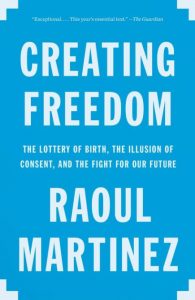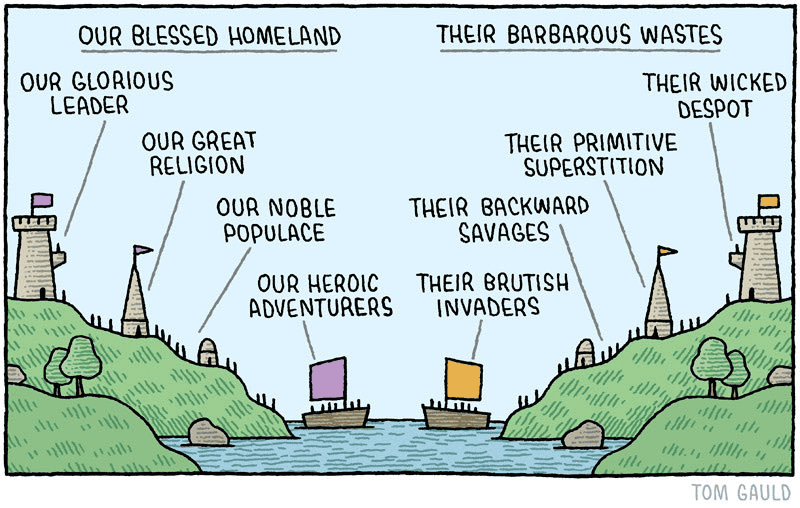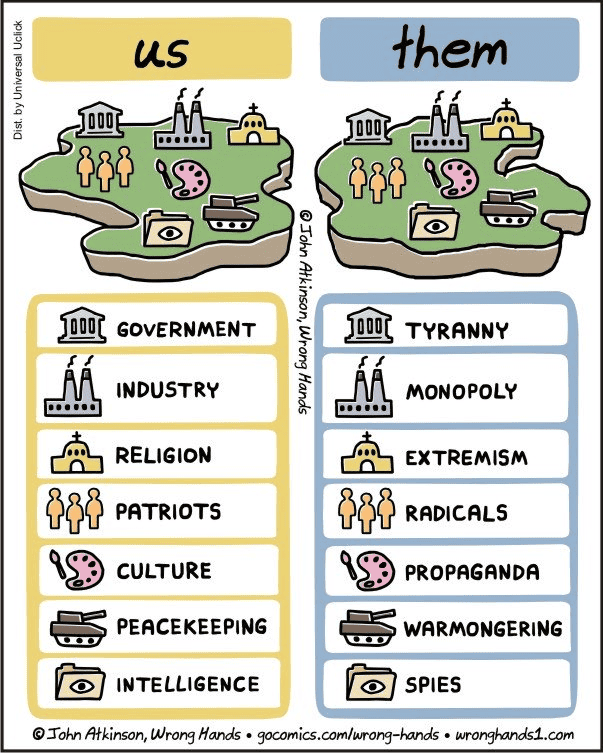This short post shares two versions of the ‘swapped at birth’ thought experiment from Raoul Martinez, author of Creating Freedom (Part 1 Lottery of Birth Book Summary).

Swapped at Birth: Lottery of Birth Thought Experiment (Raoul Martinez Excerpts)
Swapped at Birth (Religion Version)
Raoul Martinez shares one version of the thought experiment in the RSA lecture below:
“When I was 13, my worldview was changed by a simple idea. I was walking home from school with a friend of mine, and we were debating religion. He was religious; I wasn’t. And, it seemed clear to me that he only believed what he believed because of his upbringing. The thought experiment popped into my head: imagine you’d been swapped at birth with another baby and raised in a totally different faith. Don’t you think now you’d be defending with the same passion those beliefs, that religion, instead of your current beliefs? Isn’t it obvious that you’re only saying what you’re saying because of the lottery of your birth? And, I realized, didn’t the same thing apply to me? Everything about me: my beliefs, the language I spoke, my habits—it had all happened to me. I hadn’t chosen any of it.”
Swapped at Birth (War Version)
Raoul Martinez also shares another version of the thought experiment in his TEDx Talk below:
“Imagine two enemies on a battlefield … Suppose we could go back in time and swap them at birth so that each would be raised in the other’s culture. In time, would each not end up fighting for the other side—a different flag, different religion, different ideology? … This outcome would certainly surprise no one. It seems like common sense. But, the implications are significant. We’re readily admitting that the deepest convictions of these two individuals are, in a sense, arbitrary.” — Raoul Martinez
Final Thought:
“We are rooted in our environment and depend on its offerings no less than a tree whose health is inextricable from the sunlight, air and soil that surround it. We, too, begin as a seed whose growth and development depend on its environment. Our capacity for happiness, confidence, ecstasy, empathy, love and hate, is not of our own making. None of this means that we cannot change, learn and grow, or that making the effort to do so is unimportant – on the contrary, it is essential – but it does mean that the extent to which we succeed in our attempt, relative to others, is not something for which we can take credit. Just as the tiny seed that grows into a giant redwood cannot take credit for its height, we cannot take credit for what we become. In an important sense, our achievements are not really our achievements. We are notes in life’s melody, not its composer.” — Raoul Martinez
You May Also Enjoy:










Leave a Reply